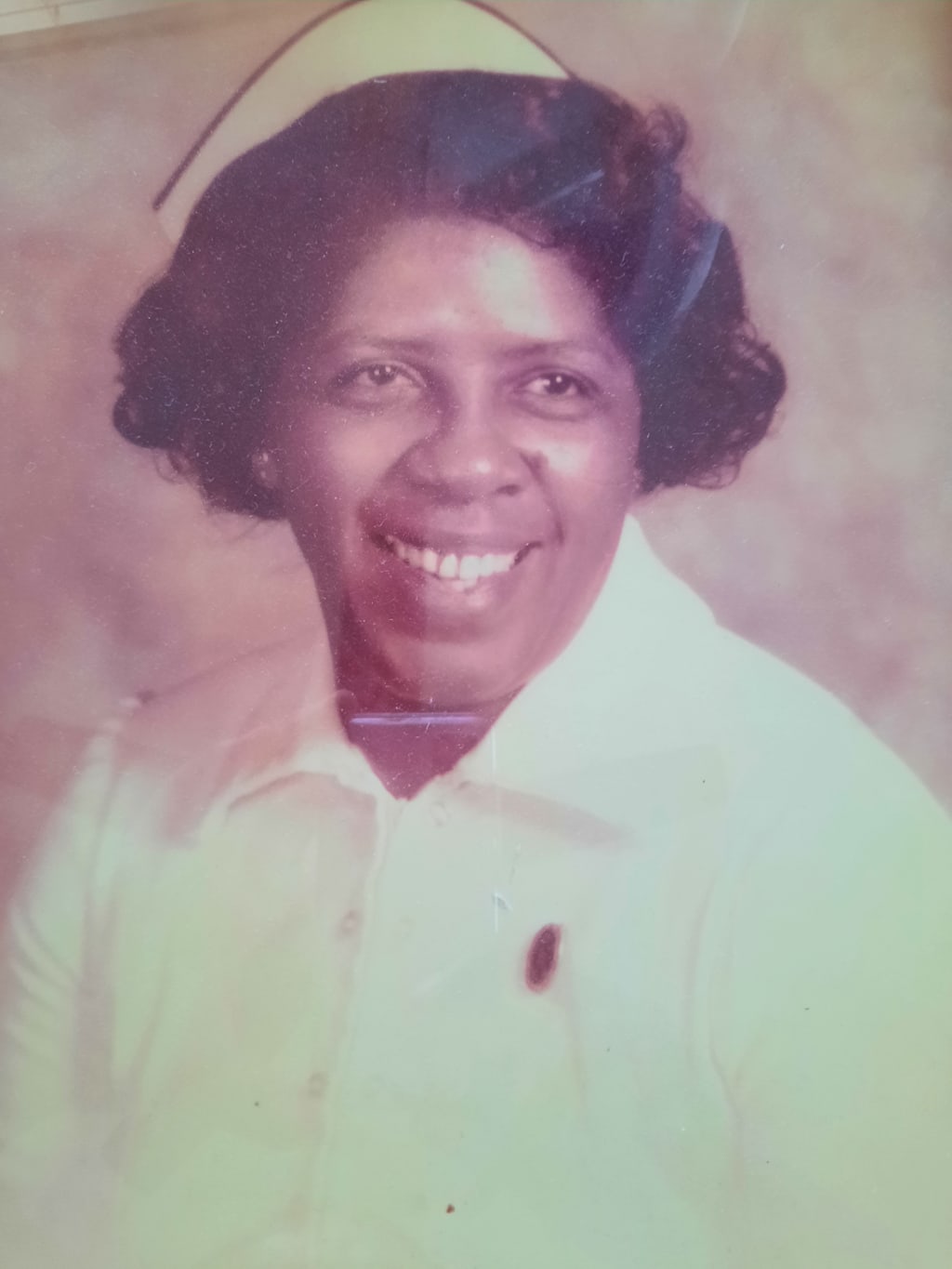Black People Music
I learned the blues for grandma

My grandma was quite the character. She was a no nonsense kind of woman and how she felt things was how she said them. When she said her peace about something it always seemed as if, no matter how harsh, cruel, or even funny, there was no other way to say it but that. She was the first Black nurse in the small town of Tracy, CA and in the whole county for that matter. She was from Louisiana and every where she went she made sure to permeate the room with southern charm. Ever since she was a little girl, she had been incredibly hard working. She went back to nursing school at the age of 38, to provide for her family. She retook every class that she got a B in so that she would have a 4.0. My grandma once told me a story of when she was a cleaning girl. The white family she worked for had it in their agreement that they would provide one meal for every work day. She had no idea that that one meal would be served on the dirty slab of concrete that lead to the back yard. She also told me the story of how, as a nurse, one of her patients, a racist white man with AIDS, took the needle out of his arm and stuck it into hers. She worried and tested for years thinking that she had certainly contracted HIV from the mans wicked actions.
When I became old enough to really connect with my grandma, at around 17 years old, she told me a few things about being black in this county. She told me that racism is nothing more than a sickness, suffice it for her, a medical professional, to sum up racism as something medically innocuous. She said you have to treat it as a sickness, not as a racist person. Grandma told me that as a black person in this country you had to carry yourself with dignity, know who you are, know who your people are, and do your people justice. I took it to heart because it came from my grandma. She was telling me never to let anyone get me down. She was the epitome of cultural competence and music was no allusion to that fact.
I, on the other hand, had grown up in Sacramento, CA, attended predominantly white schools and lived in white neighborhoods. All of my heros where white, my church members were mostly white; we did not sing traditional gospel and yes the music I listened too was all played by white pop stars or rock n roll artist. Church had taught me to play the guitar and sing by playing in junior high school, and I was pretty good. But as a kid, I did not realized that I was Black. I knew that my skin was different but I didn't know that it meant anything.
One day, when I was home from boarding school. My mom took us to see my grandma, and I brought my guitar.
My grandma called me into her bedroom and said, "Play something for me."
I had not expected her to ask me to play anything I just thought I'd sit in the living room and noodle around on my guitar, then we'd go home. I remember becoming incredibly nervous when she asked me to play, but I asked her,
"What do you want me to play something I wrote or something from the radio?"
She said, "Both".
So, I play Incubus' "Drive" record. My grandma said nothing. Then I played a song I wrote called "Time holds on to Captives".
When I got finished the silence, for at least a minute, became one of the loudest things I had ever heard. My grandma set back on her bed and asked,
"What is that nonsense?"
I began to sweat.
She asked, "You're not calling that music are you?"
I nervously, asked, "I can play something else if you want grandma, what do you want to hear? The truth was I had only known a few songs outside of the ones I had written and I wasn't dare going to play one of those again.
My grandma asked "You don't know any blues or jazz? Robert Cray? West Montgomery?"
I said, "No grandma. What's blues?
She said, "You go find out and when you know learn some of that, that's music; that's Black people music."
I said, "Okay," feeling a bit embarrassed.
Grandma said, "Go in the living room and pull you out a few of those CDs and take'm with you to listen to,"
I said, "Okay,"
"And don't you go break or scratch any of them either." She said.
I listened to those records intensely, they were all Robert Cray records, burned CDs. I took lessons for four weeks to learn the blues scale. The next time I went to visit my grandma, I didn't play for her directly, well not at first anyway. I was too scared. Instead, I plugged my guitar in and began to play 12 bar blues in Eminor. From her bedroom, I heard my grandma ask,
"Who is dat? Playing that guitar like that?"
I yelled the smooth blues music I was making and said,
"That's me grandma, it's Jite."
She summoned me to her room, "Comhere?"
She said, "Now that's music, that's black people music."
I play all genres of music now days but I'll never for get who inspired me to learn the blues, to learn black people music. Now I look for ways to make the music I make sustainable.
About the Creator
Enajite Pela
I am a singer songwriter, poet, and lover of all things music and performance. I am originally from Sacramento, CA, but now I am living in Tracy, CA, headed to Washington, DC.





Comments
There are no comments for this story
Be the first to respond and start the conversation.